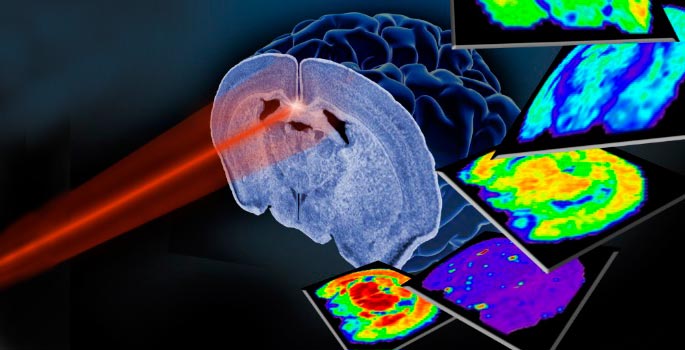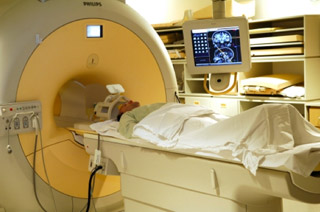Leigh MacMillan
-

Potassium channel gene modifies epilepsy risk
The discovery of a new gene that can influence a person's risk for developing epilepsy could improve diagnostic tools and open the door for new therapies. Read MoreApr 18, 2011
-

Dialing down the mercury
Antioxidant compounds may counteract the neurotoxic effects of methylmercury, new research suggests. Read MoreApr 14, 2011
-

Gene ups risk for needing pacemaker
Researchers have identified a gene that increases the risk for developing sick sinus syndrome – the most common cause for implanting a cardiac pacemaker. Read MoreApr 1, 2011
-

Grant bolsters molecular imaging resource
Vanderbilt has received a $10.3 million federal grant to establish a national research resource for mass spectometry. Read MoreApr 1, 2011
-

Smell test tells disorders apart
Patients with certain autonomic nervous system disorders have impaired odor identification, which could aid in diagnosis. Read MoreMar 17, 2011
-

Chasing Foxd3’s role in stem cells
Researchers use genetic manipulations in mice and single-cell analyses to help explain stem cell regulation. Read MoreMar 4, 2011
-

Worm gene function? Check the map.
New gene expression atlas created for roundworms provides a basis for establishing roles for individual genes in the development of specific cell types. Read MoreMar 3, 2011
-

Identification of glaucoma gene brightens future for therapies
Researchers have identified a new candidate gene for the most common form of glaucoma, which runs in families. The findings offer novel insights into glaucoma pathology and could lead to targeted treatment strategies. Read MoreFeb 24, 2011
-

Protein ‘scissors’ cut path for cancer
The protein matriptase "cuts" a key component of the prostate tissue barrier and may be involved in prostrate cancer progression, new research finds. Read MoreFeb 22, 2011
-

Getting left-right asymmetry right
The protein Nodal has been found to hold the keys to vertebrate asymmetry. Read MoreFeb 17, 2011
-

Seeing serotonin neurons in action
The Vanderbilt MRI Labs Physics / Imaging Department (Anne Rayner / Vanderbilt) Serotonin – a chemical that has roles in multiple brain functions, including mood, sleep and cognition – is manufactured by clusters of brainstem neurons gathered in the raphé nuclei. A reliable, non-invasive imaging method for assessing raphé neuron… Read MoreFeb 9, 2011
-

Paraplegia-causing proteins pair up
Peter Hedera, M.D. Hereditary spastic paraplegia (HSP), a group of progressive neurodegenerative disorders that impairs the ability to walk, can be caused by mutations in more than 40 different genes. Despite this genetic heterogeneity, the pathologic features – degeneration of long axons in the spinal cord – are relatively uniform,… Read MoreFeb 4, 2011
-

Seven Vanderbilt University Faculty Honored by AAAS Scientific Society
Seven Vanderbilt University faculty members have been elected fellows of the American Association for the Advancement of Science, an honor bestowed upon them by their AAAS peers. They are among 503 AAAS members from around the country who achieved this honor because of their distinguished efforts to advance science… Read MoreJan 12, 2011